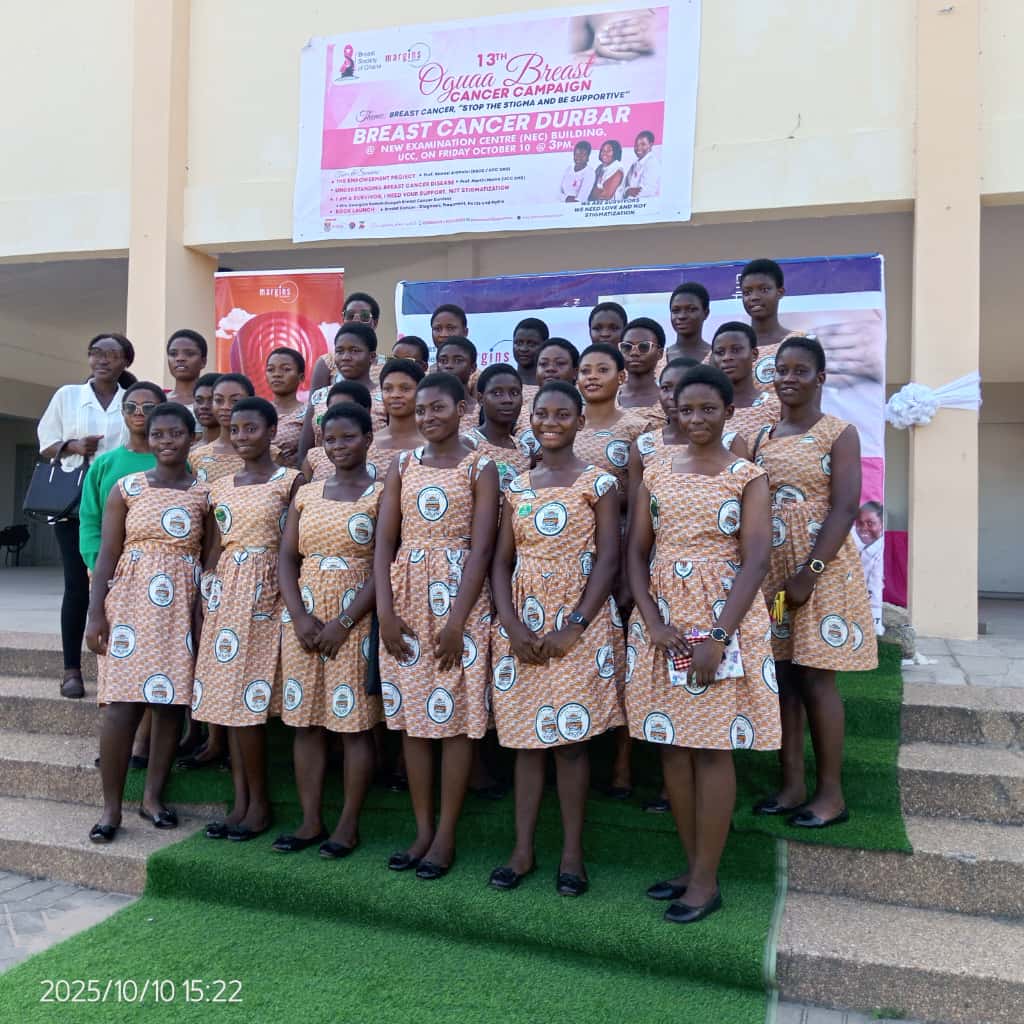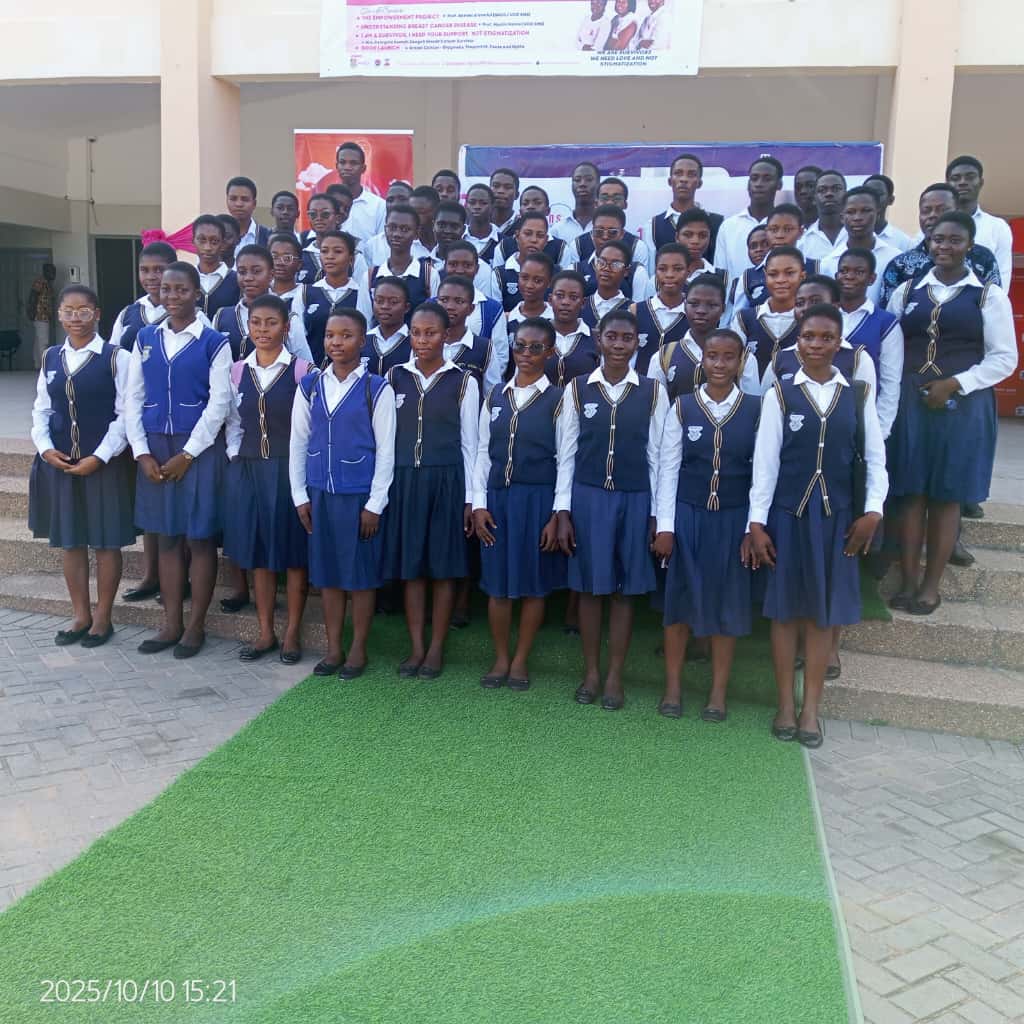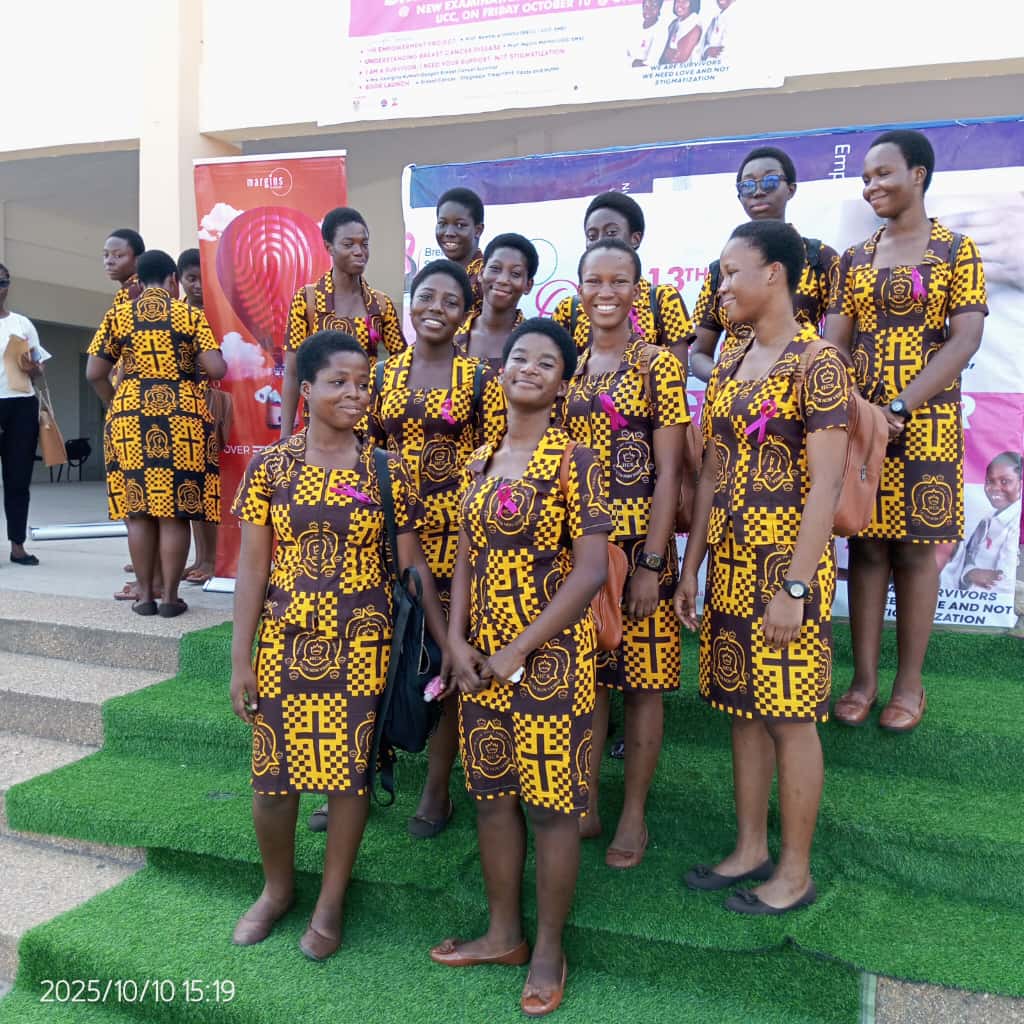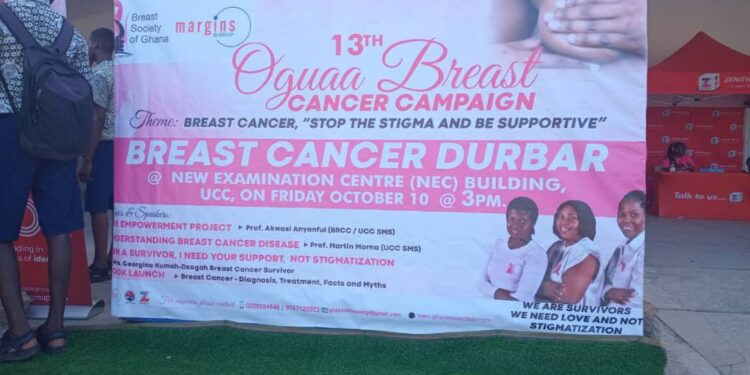The Breast Society of Ghana (BSoG), in partnership with key health stakeholders and development partners, has held a grand durbar in Accra to raise awareness and combat the stigma associated with breast cancer.
The event, themed “Breast Cancer: Stop the Stigma and Be Supportive,” formed part of The Empowerment Project a Pfizer-funded initiative jointly organized by the BSoG and Margins ID Group. The programme brought together healthcare professionals, breast cancer survivors, advocates, and community leaders to discuss the effects of stigma and promote early screening and treatment.
The durbar, held on October 10, featured educational sessions on breast cancer, personal testimonies from survivors, and the launch of a new book by the Breast Society of Ghana to promote awareness and patient support.
Former Vice President of the Breast Society of Ghana and Associate Professor of Medical Biochemistry at the UCC School of Medical Sciences, Professor Akwasi Anyanful, expressed concern over what he described as a “haphazard” approach to breast cancer screening in Ghana.
He revealed that about 4,000 to 5,000 cases of breast cancer are diagnosed annually, with an estimated 2,500 deaths recorded each year. “When we say 2,500 die, we don’t mean those diagnosed that year some were diagnosed earlier,” he explained, stressing the importance of regular screening for both men and women. “Breast cancer is real. So for the women, screen every year,” Prof. Anyanful urged.
Also speaking at the event, Professor Martin Morna, a surgeon at the University of Cape Coast School of Medical Sciences, emphasized that breast cancer often develops silently, underscoring the need for routine checks for early detection and treatment.



He dispelled long-held myths that link breast cancer to spiritual causes, clarifying that the disease stems from medical and biological factors rather than supernatural forces.
“Breast cancer is not contagious,” he said. “It does not come as a result of an infection, so taking antibiotics to treat a lump in the breast is wrong. If you see a breast lump, the best thing is to give a doctor a chance to have a look at it and make a determination.”
Prof. Morna added that while most lumps in young women may be benign, older women face higher risks and must report early for screening and diagnosis.
Mrs. Georgina Kumah-Dzagah, Executive Secretary of the Breast Society of Ghana and a breast cancer survivor, shared her personal journey and urged the public to show compassion to those diagnosed with the disease.
“The whispers, the gossip it doesn’t help. The labelling and misconceptions kill the spirit of many people even before the cancer itself takes a toll on them. Let’s stop the stigma and be more supportive,” she said.
The Empowerment Project aims to reduce stigma, improve awareness, and strengthen support systems for individuals living with breast cancer across Ghana.
As part of the initiative, the Breast Society of Ghana will organize a free breast screening exercise from October 13 to 17 at the forecourt of the Sam Jonah Library in Cape Coast to encourage early detection and treatment.
Read Also: Oguaa Paramount Chief Calls for Transparency and Fairness in Utility Tariff Review
Source: Deborah Obenewaa Kwapong , Deborah Bubune Ashiagbor, Benjamin Hutchful/ATLFMNEWS

























